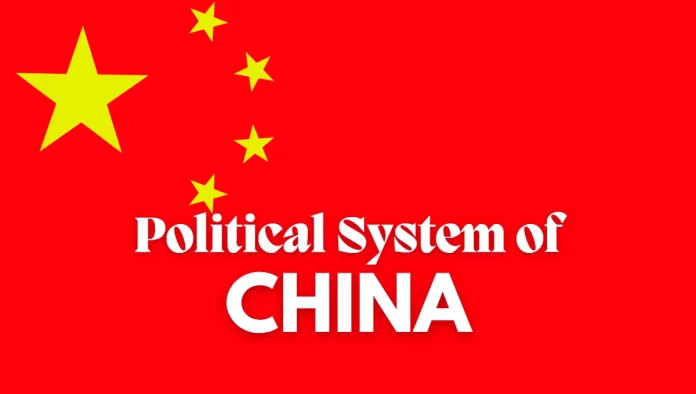The Political System of the China is Presidential system. The Constitution of China serves as the foundation of the country’s legal system and defines the basic principles of the Chinese state. It was first adopted in 1954 and has been revised several times, with the most recent version being adopted in 1982. The Constitution outlines the structure of the Chinese government, the relationship between the government and the people, and the rights and obligations of Chinese citizens.
Fundamental Rights
The Constitution of China guarantees certain fundamental rights to its citizens, including the right to vote, freedom of speech, freedom of the press, freedom of assembly, freedom of religion, and the right to a fair trial. These rights are enshrined in the Constitution, but they are not absolute and are subject to limitations in the interest of national security, public order, and social stability. For example, the government can restrict freedom of speech and assembly if it believes that these rights pose a threat to national security or social stability.
Composition of Powers – National People’s Congress
The National People’s Congress (NPC) is the highest organ of state power in China. It is composed of approximately 3,000 members and is responsible for making and amending laws, electing the President and other high-ranking officials, and supervising the work of the government. The NPC meets once a year and is divided into two sessions: the annual session and the plenary session. The NPC Standing Committee, which is composed of about 150 members, acts as the top legislative body when the NPC is not in session.
Election of President
The President of China is elected by the NPC for a term of five years. The President is the head of state and the Commander-in-Chief of the armed forces. The President also serves as the Chairman of the Central Military Commission, which is responsible for the country’s military affairs. In practice, the election of the President is largely a formality, as the CPC controls the NPC and therefore has significant influence over the election process.
Judicial System
The judicial system in China is divided into three levels: the basic level, the intermediate level, and the supreme level. The People’s Court is the highest judicial organ in China and is responsible for interpreting and enforcing the law. The People’s Procuratorate is responsible for investigating and prosecuting criminal cases. However, the judicial system is often criticized for lacking independence and impartiality. In many cases, the courts and prosecutors are heavily influenced by the government and the CPC.
Communist Party
The Communist Party of China (CPC) is the ruling party of China and is enshrined in the Constitution as the country’s leading political force. The Constitution guarantees the right of the CPC to rule and establishes its leadership role in the state and society. The CPC is responsible for setting policy and making major decisions on behalf of the government. However, the Constitution also provides for multi-party cooperation and political consultation under the leadership of the CPC. In practice, however, the CPC exercises significant control over the political system of China and other political parties are not allowed to challenge its dominance.
